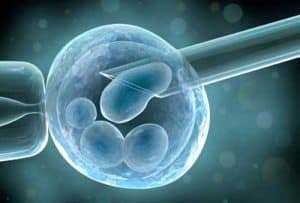
04 Aug 2012 What’s Age Got to do With it? Your Eggs or Alternatives
Many couples today focus on becoming financially stable, progressing in their career, or buying a home, before they consider becoming parents. In other cases, it may take years to find the Ms. or Mr. Right with whom to start a family, or illness may prevent one from starting a family. In short, there are a plethora of reasons people delay family formation. The hitch is, when the time finally is right, a woman may no longer be physically in her prime in terms of fertility. Assisted reproductive technology methods offer hope to mature couples looking to build a family later in life, when conception may otherwise be a challenge.
Your biological clock is ticking… “A woman is born with about one million eggs, but by the time she has her first period the number has fallen to less than 400,000… by the time women enter their 40s most of their eggs will be of poor quality” Resolve. Waiting doesn’t mean a woman cannot get pregnant, but conceiving becomes increasingly difficult with age using natural or assisted reproductive technology methods. The truth is, as a woman ages, her eggs age, too. Unfortunately, the quality of a woman’s eggs decreases over time, which decreases fertility and increases the risk during pregnancy.
What is the age limit when women can safely use their own eggs? Thirty-five is generally the age to discuss risks during pregnancy, potential complications with delivery, birth defects, and difficulties conceiving. However, many mothers today use in vitro fertilization to conceive well into their 40s. Most infertility clinics have an age limitation between 40 and 50 for patients who would like to use their own eggs, but women over age 35 should be made aware of the risks they face. Risks for couples who have children past age 35 include:
- Higher rate of birth defects and miscarriages: As a woman ages, the quality of her eggs decreases. “Low quality eggs have internal defects – problems with their chromosomes or with their energy production – that prevent them from producing healthy embryos.” (Resolve). The risk of miscarriage for women increases dramatically as women age, too. The risk of miscarriage between ages 35 and 39 is 21 percent, but for women 44 to 46 the rate increases to 60 percent. (Fertility Authority)
- Pregnancy related issues: Problems like gestational diabetes and high blood pressure during pregnancy or weakening of the heart and lungs occur more often in mothers over 35.
- C-sections are more common: Aging bodies are less durable. The physical changes that come with carrying a child for 10 months can take a toll, which could cause trouble during pregnancy or delivery. “Older mothers have a higher risk of pregnancy-related complications that might lead to a C-section delivery…” (Mayo Clinic).
- Increased difficulties conceiving: Women over 35 may ovulate less often, and eggs may be more challenging to fertilize. Doctors recommend that, if a woman cannot conceive naturally within six months, it may be time to consider alternatives. (Mayo Clinic)
What are the alternatives when one is past the cut-off age? Assisted reproductive technology (ART) offers infertile couples options like egg donation, sperm donation, and in vitro fertilization to aid in their efforts to start a family. Generally, egg donors are between 21-30 years old and are required to pass physical and psychological tests before donating. Most fertility clinics will not use donor eggs over 30-35 because of possible complications for recipients. While there is no set regulation to monitor the age of egg and sperm donors, most agencies have strict policies for donors and will not accept applicants who do not fit the criteria. For more information regarding local fertility clinics in your state, visit the Fertility Authority website.
“About one-third of couples in which the woman is older than 35 years have fertility problems” (CDC). For women over 35, alternatives to using their own eggs may be necessary to start a healthy family. However, fertility clinics are not all created equal. Be sure to find a specialist that is right for you and legal counsel that has your best interests in mind throughout the entire process. Here are a few resources that can help:
Resources:
International Fertility Law Group: International Fertility Law Group
Advanced Fertility: http://www.advancedfertility.com/age-eggs-chromosomes.htm
Alternative Conceptions: http://www.alternativeconceptions.com/
CDC: http://www.cdc.gov/reproductivehealth/Infertility/index.htm#8
Fertility Authority: http://www.fertilityauthority.com/your-fertility/age-and-fertility
Growing Generations: http://www.growinggenerations.com/
Mayo Clinic: http://www.mayoclinic.com/health/pregnancy/PR00115/

















